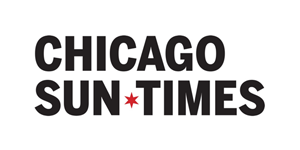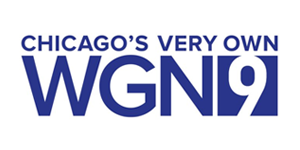
Learn More
Lake County Wrongful Death Attorneys
The unexpected death of a loved one is one of the most common traumatic experiences a family can experience. While any death can take an emotional toll on a family, unexpected deaths, especially those involving negligence, provoke strong responses and can have devastating consequences on those who depend on the deceased.
Illinois Wrongful Death Act addresses these unique and harrowing situations and creates a way for the deceased’s family to recoup some of the losses that the unexpected death of their loved one caused. The attorneys at Briskman Briskman & Greenberg represent Lake County families in their wrongful death claims against negligent individuals, hospitals, physicians, companies, and other negligent wrongdoers. Contact BB&G to discuss your rights and remedies after the death of a loved one.
Types of Accidents Involved in Wrongful Death Claims
Wrongful death claims may be brought in cases where a person or entity’s negligence caused the death of another person. While the Centers for Disease Control does not maintain statistics on wrongful death claim filings, the agency does record unintentional and accidental deaths. According to the CDC, there is an average of nearly 201,000 unintentional injury deaths in the nation. Unintentional fall deaths account for approximately 42,000 of these fatalities. Additionally, nearly 41,000 of these deaths involve motor vehicle accidents. Further, the Illinois Department of Public Health (DPH) reports that accidents and unintentional injuries are a leading cause of death in Lake County, Illinois. Many of these unintentional deaths may lead to a wrongful death claim.
Wrongful death claims often stem from the following incidents:
- Motor vehicle accidents,
- Defective products,
- Medical Malpractice,
- Workplace accidents,
- Public transportation crashes,
- Airplane or train crashes,
- Fires,
- Nursing home abuse, and
- Toxic chemical exposure.
In these cases, the claimant must establish four primary elements, including the following:
- The at-fault party owed the deceased a duty of care;
- The party breached its duty of care;
- The breach caused the deceased’s death; and
- The death caused damages.
An attorney can work with clients to meet the evidentiary requirements for each element of a wrongful death claim.
Who Can File a Wrongful Death Lawsuit in Illinois?
The deceased’s personal representative may file a wrongful death lawsuit in Illinois. If the deceased named an executor in their valid will, the executor will serve as a personal representative. However, the court will appoint an estate administrator if the deceased does not have a will or if the will is invalid.
Appointing an Administrator for a Wrongful Death Claim
The Illinois Probate Act governs the process of appointing an estate administrator. Generally, an interested party must file a petition for letters of administration. Although a court may accept any person nominated as an administrator, the Probate Act provides preference to certain family members in this order:
- Surviving spouse,
- Legatees,
- Children,
- Grandchildren,
- Parents,
- Siblings, and
- Nearest Kin.
Generally, a non-family member can only file a wrongful death claim if they are named as a beneficiary in the decedent’s will. However, certain situations allow a non-family member to file a wrongful death claim.
How to File a Wrongful Death Lawsuit in Lake County
Securing a favorable outcome in an Illinois wrongful death lawsuit requires that the claimant adheres to strict procedural, substantive, and evidentiary requirements. An experienced attorney with a comprehensive understanding of these complex laws is crucial to a timely and successful outcome. Some common steps to filing a wrongful death claim include:
Investigation
A Lake County wrongful death lawyer will work with their clients to investigate the accident and events that led to the wrongful death of their loved one. Investigating the claim includes gathering relevant evidence, contacting witnesses, and securing experts.
Filing the Wrongful Death Claim
A wrongful death attorney can ensure clients meet the applicable notice and filing requirements.
Negotiating
In many cases, the parties to a wrongful death claim may be able to settle their disputes without proceeding to trial. In these situations, an attorney can negotiate with the applicable insurance companies or any other party involved in the claim.
Trial
An attorney will likely take the case to trial if the parties cannot reach a settlement. During the trial, the attorney may file motions, engage in discovery, conduct depositions or interrogatories, present expert testimony, and advocate on behalf of their clients.
A lawyer can handle the significant legal aspects of their client’s wrongful death claims so that the client can focus on their emotional and psychological recovery.
Evidence to Support Wrongful Death Claim
The outcome of a wrongful death lawsuit hinges on the significance and weight of evidence the claimant presents. Some relevant evidence in a Lake County wrongful death lawsuit includes the following:
- Medical records,
- The deceased’s death certificate,
- Police and autopsy reports,
- Witness statements,
- Expert testimony,
- Wage and tax records, and
- Photos or videos of the incident.
An attorney will present arguments that will help the court understand the weight and importance of the evidence, allowing the court to award maximum damages.
Damages for Wrongful Death Lawsuit
After a successful wrongful death claim, Illinois courts will award damages to the deceased’s person’s estate or survivors. Under Illinois law, the deceased individual’s surviving spouse and next of kin will receive the damages relative to their dependency on the deceased person.
Damages address the tangible and intangible losses associated with wrongful death. Typical damages in an Illinois wrongful death claim may include compensation for:
- Loss of financial support the deceased would have provided;
- Loss of consortium the deceased would have had with their spouse;
- Loss of instruction, training, and education the deceased would have provided to their children; and
- Survivors’ mental suffering.
While many states maintain a cap on wrongful death damages, Illinois does not have a cap on these types of damages. Under Illinois law, the jury may award wrongful death damages as they deem fair and just.
Statute of Limitations for Lake County Wrongful Death Claims
Like any other negligence-based lawsuit, Illinois maintains a statute of limitations on wrongful death claims. Under Illinois law, the statute of limitations for most wrongful death lawsuits is two years from the date of the victim’s death. It is important to note that the statute of limitations begins to run at the date of the victim’s death, not the date of the accident.
Exceptions to Wrongful Death Statute of Limitations
There are some narrow exceptions to Illinois’ wrongful death statute of limitations. The exceptions include the following situations:
Violent Intentional Conduct
If the wrongful death involved “violent intentional conduct,” the claimant has five years of the date of the victim’s death to file their claim.
Criminal Cases
In addition, claimants may commence a Lake County wrongful death lawsuit one year after the completion of a criminal case, if the person who caused the death was charged with any of the enumerated crimes in relation to the victim’s death:
- First or second-degree murder,
- Intentional homicide or voluntary manslaughter of an unborn child,
- Involuntary manslaughter,
- Reckless homicide,
- Involuntary manslaughter or reckless homicide of an unborn child, or
- Drug-induced homicide.
Minors
The statute of limitations may extend to up to two years if the claimant is a minor at the time of the wrongful death.
Under the law, Illinois courts may refuse to hear a wrongful death case if the claim does not meet the applicable statute of limitations.
Has Another’s Negligence Caused the Tragic Loss of a Loved One?
If you recently lost a loved one in a preventable accident, it’s normal to feel overwhelmed; not only by sadness and grief but also by the thought of moving on. And while nothing can turn back the hands of time to before the accident, pursuing a wrongful death claim will allow you to hold the person or company responsible for the death of your loved one legally and financially accountable. At the Lake County wrongful death law firm of Briskman Briskman & Greenberg, we’ve been helping grieving families pursue justice since 1987. Over this time, we’ve come to learn how to offer our clients compassionate representation that’s laser-focused on getting them fair compensation for their loss. To learn more, and to schedule a free consultation with a Lake County wrongful death lawyer today, give us a call at 877-595-4878. You can also connect with us through our online contact form.




SEEN ON:







